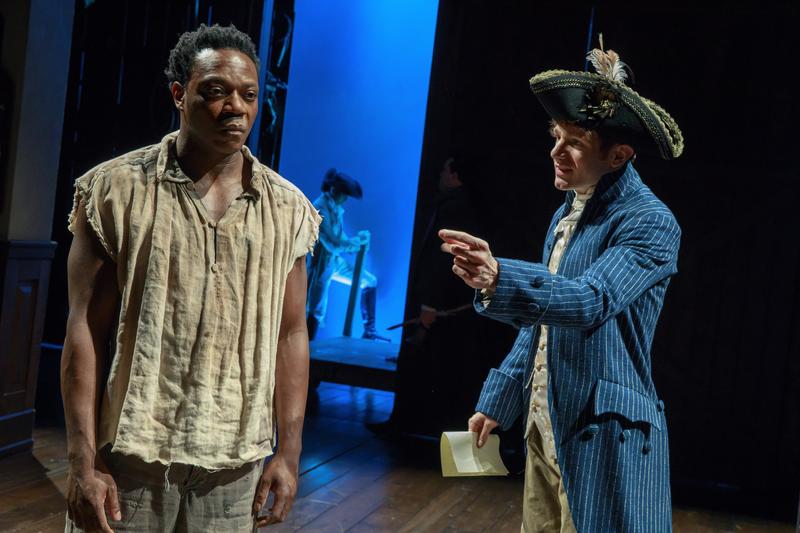
In Bruce Norris's satire of human frailty and American finance "The Low Road," there are no redeeming figures. All types of people are skewered by his pen: capitalists, aristocrats, philanthropists, liberal theater goers. The result could be a bleak work. But instead, it's raucous, raunchy, inventive and constantly surprising.
The first act is a morality tale similar to, say, Thackeray's Vanity Fair. A greedy young man of the 1770s, Jim Trewitt, pulls himself up from his adoptive home in a brothel to become a financial investor. He believes in nothing but himself and the markets. In fact, his hero is Adam Smith — the economist and free market evangelist, and the play's wry narrator.
Trewitt is surrounded by a large, motley cast of double-cast eccentrics who buzz through the story in tricorn hats and petticoats, vibrating with passion and self-interest. None of them are heroes, most especially Trewitt (Chris Perfetti). He cheats and steals, maneuvers to keep a black man enslaved and abuses a woman, all the while whining about how hard his lot has been. His mixture of clueless and cruelty seems almost comic until the second act, which jumps forward in time. When his arguments are repeated by a different, more contemporary capitalist, we start to see Trewitt (who we meet again) as less of a buffoon and more a dangerous bully.
"The Low Road" sees generosity as naive and selfishness as humanity's natural condition. Its biggest flaw is that it occasionally lapses into unnecessary pedantry about how the American financial system enslaves and abuses the underclasses. For the most part, however, this is audacious storytelling, remarkable both for its freshness and the brisk way it takes all of us to task.
By Bruce Norris, directed by Michael Greif
At the Public Theater through April 1
